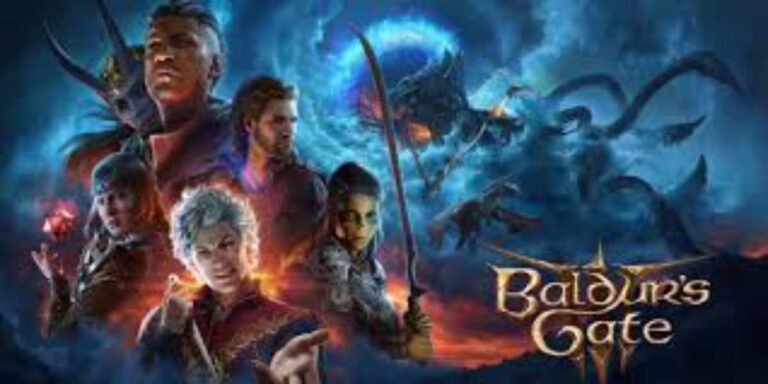Baldur’s Gate 3, developed by Larian Studios, is a sprawling role-playing game set in the Dungeons & Dragons universe, within the mystical Forgotten Realms.
The story revolves around a group of adventurers infected with illithid tadpoles, granting them remarkable powers while threatening to turn them into mind flayers.
Players navigate a rich narrative teeming with complex decisions, culminating in a dramatic confrontation against the Netherbrain—the source of the illithid menace.
Overview of the Story
The game unfolds as the adventurers battle against various factions and adversaries, including the manipulative Gortash and the sinister Orin.
These antagonists, along with the overarching threat of the Elder Brain, push players into making moral, strategic, and emotional decisions that shape their characters’ paths.
At its heart, the story explores themes of identity, control, and the balance of power. The choices players make ripple through the narrative, influencing relationships with companions, the fate of Baldur’s Gate, and the future of Faerûn itself.
Major Events in the Finale
The climactic sequence begins after players secure the three Netherstones, essential artifacts for confronting the Elder Brain.
Along the way, players deal with Orin and Gortash, resolving their roles in the Absolute’s machinations.
The Final Battle: The confrontation with the Elder Brain pits the party against overwhelming odds. Players must decide whether to ally with the Emperor, a mind flayer with its own motives, or free Orpheus, the Githyanki prince imprisoned by the Absolute. These choices heavily influence the final battle and the ending.
Key Choices:
Ally with the Emperor: This path ensures the Emperor’s aid in defeating the Elder Brain, though it involves moral compromises, such as allowing Orpheus to remain imprisoned.
Free Orpheus: By releasing Orpheus, players can gain his assistance but risk turning him into a mind flayer to confront the Elder Brain effectively.
Forge Your Path: Players can reject both alliances, making the battle more challenging but retaining full agency in the story’s conclusion.
The Endings
The Good Ending:
In the most hopeful outcome, the Elder Brain is destroyed, and the citizens of Baldur’s Gate rise against the remaining illithid forces. This ending emphasizes renewal, as companions and characters reflect on their personal growth and the journey they’ve shared.
The Evil Ending:
Players who choose to dominate the Elder Brain and seize control of its power take the darkest path. This ending sees the player character becoming the new Absolute, unleashing armies across Faerûn while subjugating their companions.
Gale’s Sacrifice:
Players can opt for an earlier resolution by allowing Gale to detonate himself during the final confrontation. While this ensures the destruction of the Elder Brain, it comes at the cost of the entire party, resulting in a tragic yet heroic conclusion.
Impact on Future Storylines
The endings leave tantalizing possibilities for expansions or sequels within the Baldur’s Gate universe:
Orpheus’ Fate: If Orpheus becomes a mind flayer, his potential quest for vengeance against Vlaakith opens new narrative threads for future games.
Companions’ Epilogues: Each companion’s arc concludes based on the player’s choices, setting the stage for individual stories or reunions in future installments.
The State of Faerûn: The political and societal ramifications of each ending reshape the Forgotten Realms, providing a rich backdrop for further exploration.
Frequently Asked Questions
What are the main endings in Baldur’s Gate 3?
The game offers three primary endings: a hopeful conclusion where the Elder Brain is destroyed, a darker path where players seize control of the Brain, and a sacrificial ending involving Gale.
Do player choices significantly affect the story?
Yes, decisions made throughout the game impact not only the finale but also relationships with companions, the fates of key characters, and the broader narrative outcomes.
Is there a canonical ending?
No. Baldur’s Gate 3 emphasizes player agency, allowing each ending to reflect different moral paths and personal journeys.
What happens to the companions after the finale?
Each companion’s fate depends on the player’s decisions and their relationships with the main character. Epilogues provide closure or hint at future developments.
Baldur’s Gate 3 masterfully blends storytelling, choice, and gameplay to deliver a memorable experience where every decision counts.
Whether players save Faerûn or succumb to the temptation of power, the game ensures an epic and deeply personal journey.
The varied endings enrich the lore of the Forgotten Realms, leaving fans eager for what lies ahead.
